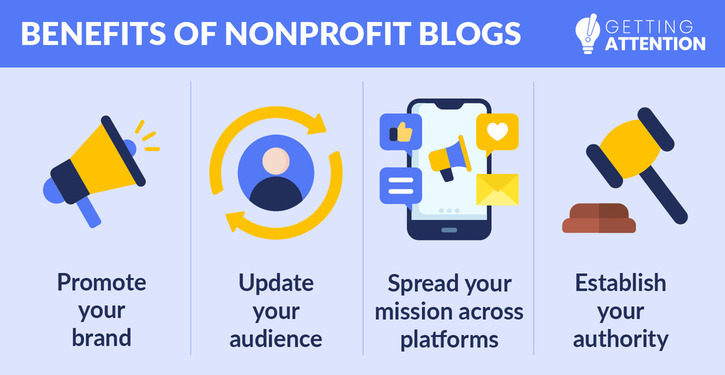As a social impact agency that exclusively works with non-profits and social enterprises, we’ve seen firsthand how a lack of web visibility stunts too many cause-driven organizations.
It pains me when a passionate founder pours sweat and tears into their meaningful mission, yet struggles to attract support because no one can find their website.
By neglecting basic search engine optimization, these change-makers miss out on connecting with so many potential volunteers, donors, and partners aligned with their vision.
They simply don’t realize how heavily people rely on Google to discover causes, research issues, and decide where to devote their time and money. Ranking on that first page can mean the difference between thriving impact and barely scraping by.
The solutions seem deceptively simple...

Why SEO Matters for Reaching More Supporters
Google processes over 3.5 billion searches per day. People increasingly use search to find causes to care about, volunteer opportunities, and non-profits to support financially.
If your organization isn't easily discoverable in Google searches related to your cause, you are invisible to many potential supporters. High search rankings lend credibility and trust to organizations as well.
Consider these stats:
- The #1 search result for any query gets over 30% of all clicks
- 75% of searchers never look past the first page of results
- Non-indexed pages or sites buried on page 2+ get almost no traffic.
Simply put, if you aren't ranking well for relevant keywords, most potential volunteers and donors won't be able to find or connect with your non-profit online.

Start with an SEO Audit
As an agency that handles SEO for many non-profits and cause-driven brands, we always start every engagement with a thorough audit. This allows us to identify and address the most impactful areas for improvement.
I recommend all non-profits do the same, analyzing on-page content, technical site health, backlink profiles, and more. Focus on quick wins first before tackling larger, longer term SEO initiatives.
Here is an overview of key items to examine in an SEO audit for non-profits:
On-Page Optimization
On-page refers to all elements you directly control on your website. Simple tweaks here can lead to noticeable search ranking lifts.
Keywords: Identify themes and terminology commonly used when discussing issues and causes relevant to your organization. Incorporate these keywords naturally throughout page content where relevant. Also highlight mission statements clearly featuring these terms.
Page Titles & Meta Descriptions: Page titles and meta descriptions summarize page contents in search listings. Most clicks come from properly optimized titles and descriptions.
Headings: Proper heading tag structure (H1, H2, H3) improves on-page SEO and accessibility. Outline content thematically.
Media: Include images, videos, and other media where possible. Search engines crawl embedded media, expanding page relevance.
Page Speed: Faster sites rank better in search. Test site speed and optimize code, plugins, images, etc to improve.
Crawl Errors: Fix duplicate pages, broken links, orphaned pages and other issues that might block pages from being indexed.
![11 Tips to Improve Your SEO Strategy [Infographic]](https://static.semrush.com/blog/uploads/media/c9/df/c9df4bb1fc4d8b3d02a70d0fef4a3fe4/original.png)
Technical SEO
Behind-the-scenes technical elements affect how search engines crawl and understand your website.
Indexed Pages: Compare indexed pages in search engines to actual site content. Index all important pages through XML sitemaps and internal linking.
Structured Data: Add schema markup to improve search snippet displays and sitelink features. Helps search bots understand site content.
URL Structure: Avoid overly complex URLs with multiple parameters. Create clean, logical URL paths using relevant keywords.
Mobile Optimization: With over 50% of searches now on mobile, websites must be fully mobile-friendly. Test with Google Mobile Friendly tool.
Link-building Analysis
The number and authority of external websites linking to your non-profit site also impact search ranks.
Referring Domains & Backlinks: Map out all external domains currently linking to your website. Prioritize outreach to topically relevant organizations.
Link Anchor Text: Check the anchor text (underlined linked text) used for current backlinks. "Your Company" and URL links are common but generic. Target more contextual link anchors containing your keywords.
Link Velocity: Compare historical linking patterns over time. Accelerating or decelerating velocity may signal issues.

Blogging Brings Long Term Benefits
Many assume search optimization is all about behind-the-scenes technical tweaks. However, regularly publishing high quality, useful content also plays a big role.
Adding a blog to your non-profit website keeps visitors engaged longer. Unique, regularly updated content also helps pages rank better over time. Other benefits include:
- Improved domain authority metrics which broadly influence search ranks
- Expanded keywords and relevance for more search opportunities
- Deeper pages ranking better from internal links in blog posts
- More backlink opportunities as others reference your thought leadership content
From addressing frequently asked questions to sharing stories of those your non-profit helps, a blog sparks enduring connections with supporters. Even foundations focused narrowly on research can extract shareable insights from their work.
Tracking Your Progress
After making recommended SEO improvements, diligently track results month-over-month to determine effectiveness.
Focus on key metrics like:
| Metric | Description |
|---|---|
| Organic Search Traffic | Total visitors from Google and other search engines |
| Keyword Rankings | Positions for target phrases related to your cause |
| Pages Indexed | Number of URLs included in search engines |
| Backlinks | Tally of external sites linking to your domain |
Compare traffic reports before and after changes. Use ranking tools to monitor optimization efforts for specific keywords. Identify issues holding back key pages.
Continually refine on-page elements, content, outreach and technical site health for better results over time.
Executing an Effective SEO Strategy
Showing up prominently in relevant Google searches should be a top priority for non-profits looking to expand support.
With this SEO audit checklist and tracking plan, your organization can dramatically boost discoverability. By leveraging organic search better, you will connect with more potential donors, volunteers and champions for your mission.
The basics outlined here are just the start. Depending on your existing foundation and resources, non-profits can also explore advanced tactics like national Google Ad Grants, localized SEO, schema enhancements, reviews generation, and more.
If tackling all of these SEO to-dos feels overwhelming internally, hiring a specialist search marketing agency is recommended. Their expertise and outsider auditing perspective pays dividends.
Let us know if our team of SEO experts can help advise or handle search optimization for your non-profit. With over a decade of experience specifically helping cause-driven organizations boost web visibility, we have the proven framework to grow your visitor traffic and supporter base.






